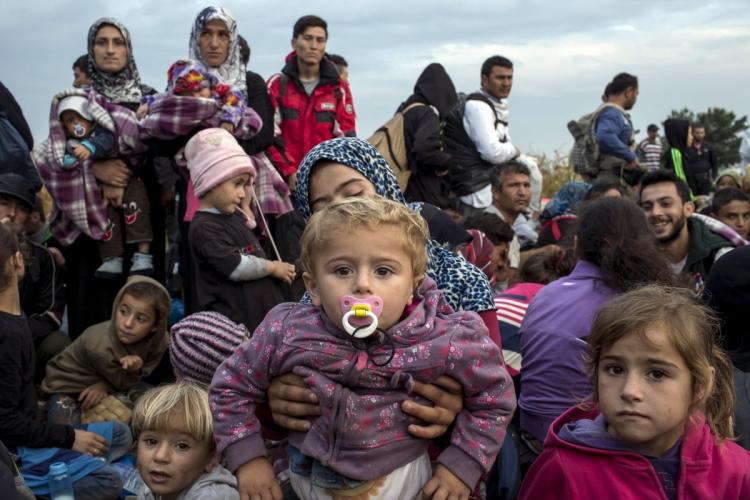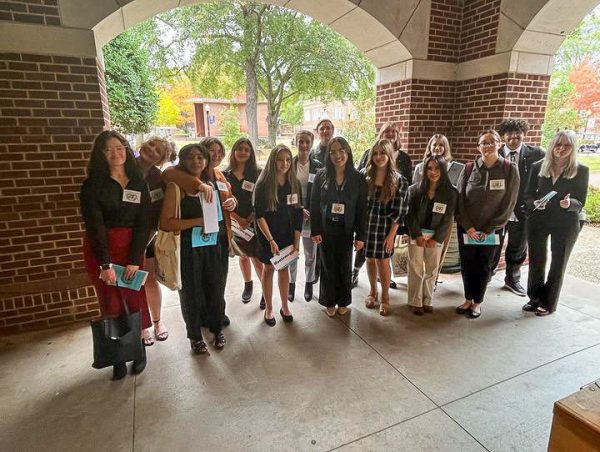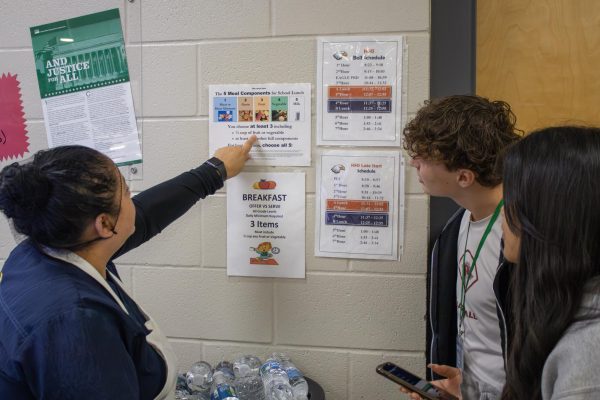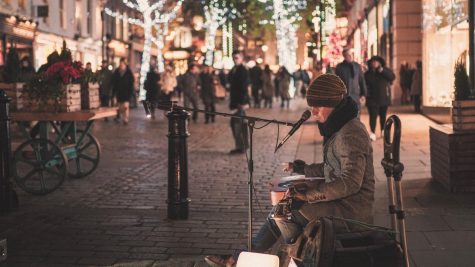Shutting the Door on Immigrants
January 30, 2017
Earlier this week, President Trump signed an executive order calling for a temporary ban on immigrants coming from countries prone to terror attacks. He and his supporters claim to be doing this to keep radical Islamic terrorists out of the country, but what are the real consequences of this action? While strengthening US borders sounds good in theory, the morality of the situation is much more complicated than just banning immigrants.
To understand what this new executive order is really saying, you need to know what “extreme vetting” a phrase Trump used during his campaign, means. Vetting is synonymous with examine, scrutinize, and inspect. Of course, we want to keep an eye on who is coming in and out of the country. However, this order gives the Department of Homeland Security the power to choose who gets into the country based on religion. Christians from Syria would be more likely to get in than people of other faiths. This order gives the government the power to examine an individual and either accept them or turn them away solely based on their religion.
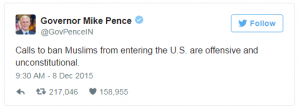
The order also says that the entry of all refugees will be suspended for 120 days, Syrian refugees are banned indefinitely, and citizens of seven Muslim countries – Iran, Iraq, Libya, Somalia, Sudan, Syria, and Yemen – cannot enter for 90 days. Even those with green cards from those countries are barred from entering without going through a case-by-case basis forcing them to go through a “secondary screening” according to Homeland Security Secretary John Kelly.
People around the world are being detained in airports and turned away from their flights. They have literally been removed from planes they had already boarded. The creation of visas has been halted and already existing ones have been suspended. Individuals who have gone through the lengthy process (usually two years of examinations) of gaining entry to the United States are now seeing the door slam shut in their face. Students on vacation, people visiting family, and immigrants who have taken the appropriate steps to enter the country are being refused. Fear and panic are ensuing in airports in other countries.
But don’t worry. If you’re a Christian, you’ve got a good shot at getting back in. Because the US is a land that supports religious freedom.
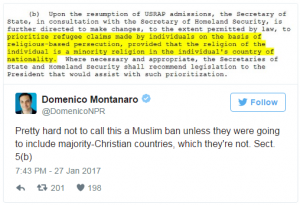
In the words of President Trump himself, this is “very, very unfair.”
This tactic for keeping the country safe, best described as “better safe than sorry”, is. Not. Effective. It is blatantly xenophobic, and it is a slap in the face to foreigners who followed every rule in order to come to the States. Of course, there should be a process in place to make sure incoming immigrants don’t pose a threat. But to generalize every immigrant in such a harmful way, while representing a country that was built by immigrants, undermines American values that have existed since 1776.
Imagine you’ve just finished your vacation in a foreign country. You’re trying to get back home from visiting family, from a business trip, from a wedding, from a funeral, from study abroad. Even though all your paperwork is in order, and you used to be allowed in the country, all of the sudden, you’re not allowed to board the plane. You’re not allowed to board any plane. You are now stuck in a foreign country, where you probably don’t have a place to live, without any of your belongings that are still in the States, unable to get to your family, still in the States, unable to get back to your job, still in the States. What kind of situation does that put you in? The kind of situation that puts you in jeopardy of losing everything. All of this because Trump decided to change the locks on the door.
Beyond the obvious distress those who are trying to return to the US are facing, the dire circumstances that immigrants from the Middle East are being completely ignored by this executive order. In most cases, the shelters of many families have been destroyed. Their homelands are no longer safe to stay in, and so they are stuck seeking shelter from unforgiving, racist, and xenophobic countries. With this new executive order, they have no chance to reach safety in the Land of the Free.
Even if they do make it, the backlash and discrimination immigrants face is despicable. Spending months or years in constant fear, awaiting approval to get in the United States, only to be attacked, mocked, and shamed for your religion is not an enviable position.
I understand that the safety of America is important. I understand, like Trump has said, that these immigrants come from the very countries in which we are fighting terrorist forces. However, not all of these immigrants are terrorists. They are not the ones we should be fighting. As a global power, we should cooperate with other countries in order to better the situation of our own land and others. We should show a little more empathy and a little less apathy when it comes to immigration.
By the way, Donald Trump’s mother immigrated to the US, as did his paternal grandparents. Two of the three women he married are also immigrants.
UPDATE: On Sunday, a federal judge decided that Trump’s executive order was unconstitutional. The judge ruled that individuals holding a legal visa could not be deported if they were already in the US or on the way. Even so, this doesn’t mean that the people being detained in airports throughout many countries will be released. The ruling doesn’t eliminate the order in its entirety, but it’s a start.
Adviser’s note:
From Politifact: “Interestingly, “The various people who have, in fact, committed terrorist acts in this country, from 9/11 on, none of them came from any of the seven countries that are the subject of the president’s executive order,” Nadler said in a CNN interview Jan. 28. “If you really want to protect this country, why are Saudi Arabia, Egypt and Turkey left out of the order? Most of the 9/11 conspirators came from Saudi Arabia.” Though it must be pointed out that three non-deadly attacks have come from perpetrators from Iran and Somalia.
[However,] it must be pointed out that three non-deadly attacks have come from perpetrators from Iran and Somalia. (…) One of those examples includes the November 2016 attack at Ohio State University by a Somali refugee who had lived in Pakistan before coming to the United States. Abdul Razak Ali Artan, 18, was shot dead by a police officer after he slammed his car into pedestrians and injured others with a butcher knife. The FBI said it would investigate the attack as a “potential act of terrorism.”
In September 2016, Dahir Adan was shot dead after stabbing nine people in a Minnesota shopping mall. Adan was identified by his father as Somali but born in Kenya, moving to the United States when he was a child.”



